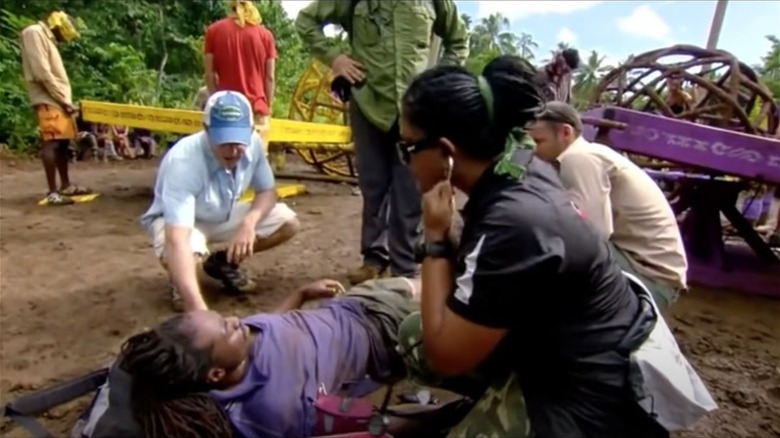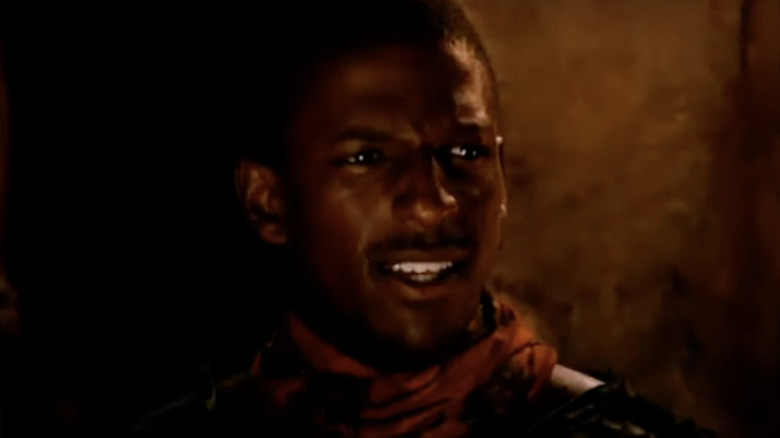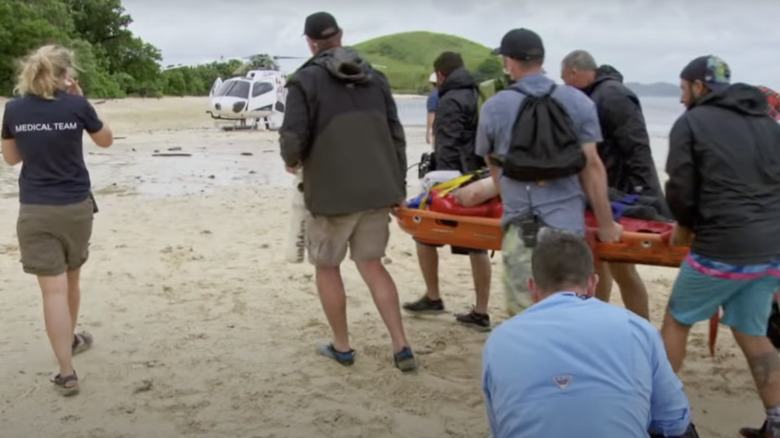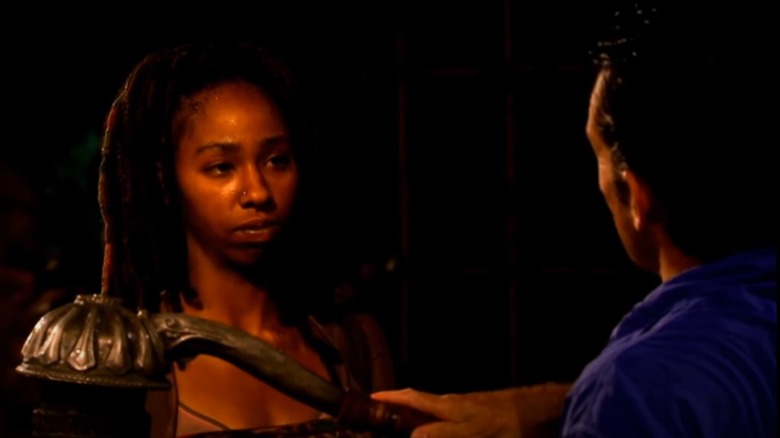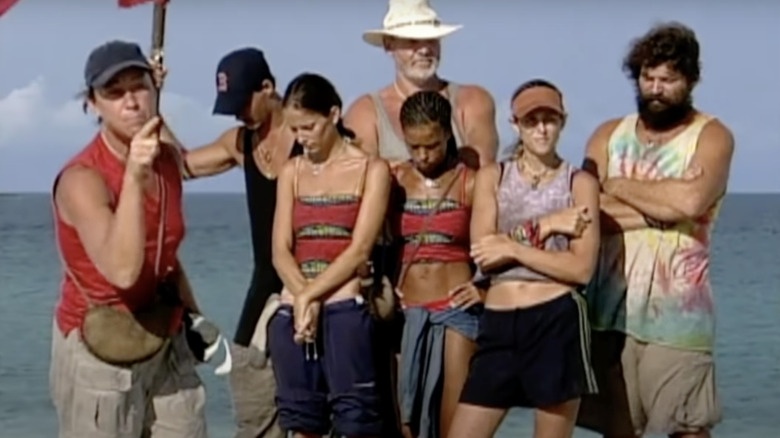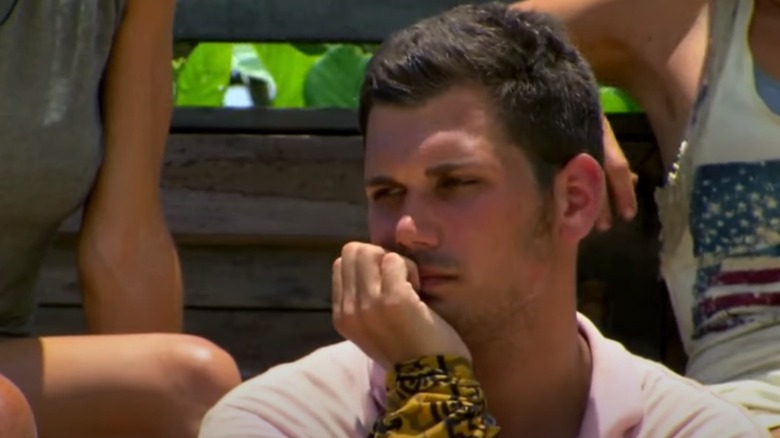Reasons Survivor Contestants Have Quit The Show
"Survivor," the iconic reality television show, is a captivating blend of physical challenges, strategic gameplay, and intense social dynamics. For over two decades, contestants have embarked on the adventure of a lifetime, navigating the treacherous terrain of remote islands while vying for the coveted title of Sole Survivor. Yet, amidst the triumphs and tribulations of the game, not every journey reaches its intended destination.
In the annals of "Survivor" history, departures from the game are as varied as the contestants themselves. From medical emergencies to strategic decisions, each exit offers a unique glimpse into the complex interplay of human emotions, resilience, and personal values. From the physical toll of grueling challenges to the emotional strain of isolation and conflict, contestants face a myriad of challenges that test their limits and shape their destinies. Some departures are marked by acts of selflessness and sacrifice, while others are fueled by personal struggles and the quest for redemption. Yet, beneath the surface of each departure lies a narrative of resilience, determination, and the enduring spirit of the human condition.
From the iconic to the unexpected, these are the reasons "Survivor" contestants have quit the show.
Medical conditions
"Survivor" is renowned for subjecting its contestants to extreme conditions, testing their physical and mental fortitude to the limit. Unfortunately, in some instances, these challenges can lead to serious medical emergencies, forcing players to make the difficult decision to leave the game.
Russell Swan's journey in "Survivor: Samoa" (Season 19) abruptly concluded due to a harrowing combination of dehydration and exhaustion. During an intense challenge, Russell pushed himself to the brink, ultimately collapsing in a moment that sent shockwaves through the game. The medical team swiftly intervened, but despite their best efforts, Russell's condition failed to improve. Faced with the stark reality of his health rapidly deteriorating, the decision was made to medically evacuate him from the competition, ensuring his safety above all else.
In a similar vein, Dana Lambert's time on "Survivor: Philippines" (Season 25) was marked by a valiant struggle against both illness and pre-existing medical conditions. Determined to overcome the odds, Dana battled through the challenges thrown her way, refusing to let adversity deter her. However, as the game progressed, Dana's health began to falter, with her condition rapidly worsening. In a poignant moment of self-awareness and prioritization, Dana made the courageous choice to withdraw from the competition, recognizing the gravity of her situation and placing her well-being above the pursuit of victory.
Homesickness
"Survivor" thrusts contestants into an isolated environment, far removed from the comforts of home and the embrace of loved ones. The emotional strain of prolonged separation can weigh heavily on individuals, leading to overwhelming feelings of homesickness. Jenna Morasca, from "Survivor: All-Stars" (Season 8), experienced this firsthand when confronted with the distressing news of her mother's deteriorating health. Despite her unwavering determination to compete, Jenna found herself grappling with the unbearable ache of homesickness, compounded by the knowledge that her time with her mother was precious and fleeting.
In a moment of profound clarity and love, Jenna made the courageous decision to leave the game, prioritizing her presence by her mother's side during her final days. Her sacrifice underscores the emotional toll of being separated from home and loved ones, highlighting the lengths contestants are willing to go to honor their personal connections and values, even in the midst of a high-stakes competition.
Lack of food and/or water
"Survivor" is notorious for pushing contestants to their physical limits, often subjecting them to grueling conditions. The relentless struggle for sustenance can lead to severe hunger and dehydration, prompting some players to contemplate quitting, like Osten Taylor on "Survivor: Pearl Islands" (Season 7).
In "Survivor: Pearl Islands," Osten's journey was marked by an unyielding battle against the harsh conditions of extreme deprivation. Day by day, he grappled with the debilitating effects of hunger and thirst, feeling his strength and morale diminish under the game's relentless pressures. Despite his initial resolve to endure, Osten eventually reached a breaking point where the combined physical and mental strain became too much to bear.
What further intensified Osten's struggle was the relentless exposure to the elements. The constant rain, blistering heat, and lack of adequate shelter added an additional layer of torment to an already arduous situation. His body, already weakened by starvation and dehydration, struggled to cope with the harsh environment, further exacerbating his physical and mental exhaustion. In a moment of vulnerability, he made the tough choice to withdraw from the competition, realizing that his own well-being mattered more than the pursuit of victory.
Mental health struggles
"Survivor" is not only a test of physical endurance but also a crucible for mental resilience. The intense social dynamics, strategic gameplay, and constant stress of the competition can exact a heavy toll on contestants' mental well-being.
Julie McGee's journey in "Survivor: San Juan del Sur" (Season 29) was marked by a courageous battle against emotional distress and anxiety. As the game unfolded, Julie found herself grappling with the relentless pressure cooker of social dynamics and strategic maneuvering. The ever-shifting alliances, coupled with the scrutiny of her every move, stretched her psyche to its limits. The constant uncertainty and the weight of decision-making took a toll on her mental well-being, leaving her feeling overwhelmed and emotionally drained.
Despite her best efforts to navigate the tumultuous waters of the game, Julie reached a tipping point where the weight of her emotional burden became unbearable. The persistent stress and anxiety began to overshadow her ability to enjoy the experience or effectively compete. In a courageous act of self-awareness and self-preservation, she made the difficult decision to quit the competition.
Injury
In the rugged terrain of "Survivor," physical injuries are not uncommon, and they can have profound implications for a contestant's ability to continue in the game.
Take, for instance, Pat Cusack's journey in "Survivor: David vs. Goliath" (Season 37), which took an unexpected turn when he suffered a severe back injury during a particularly treacherous boat ride at the beginning of the game. Despite his initial resolve to soldier on, the excruciating pain and potential long-term consequences of his injury became increasingly apparent. Pat's determination to persevere was evident, but it soon became clear that his well-being was at stake. In a moment of necessity, the decision was made to medically evacuate Pat from the competition, ensuring his safety and preventing further harm.
Similarly, Kourtney Moon's time on "Survivor: One World" (Season 24) also came to an abrupt halt when she sustained a debilitating wrist injury during a challenge. The impact of the fall left Kourtney with a fractured wrist, rendering her unable to continue in the game. The severity of her injury was evident, and the limitations it imposed were undeniable. Recognizing the need for immediate medical attention, the medical team intervened, ultimately leading to Kourtney's evacuation from the competition to receive proper care.
Exhaustion
The relentless pace and unforgiving conditions of "Survivor" can indeed push contestants to their psychological limits, leaving them depleted and drained. While some may persevere through sheer determination, others may reach a point where they feel they can no longer continue, either strategically or due to sheer exhaustion.
NaOnka Mixon's journey in "Survivor: Nicaragua" (Season 21) was marked by moments of both resilience and controversy. As the game progressed and alliances shifted, NaOnka found herself grappling with the toll of exhaustion, both physically and mentally. The demanding challenges, coupled with the constant strategic maneuvering, took a toll on her psyche, leaving her feeling increasingly drained.
Despite her competitive spirit and desire to succeed, NaOnka reached a pivotal juncture where she perceived her chances of winning as increasingly slim. In a strategic move aimed at preserving her dignity and avoiding further hardships, she made the controversial decision to quit the game. While her decision sparked debate among both fellow contestants and viewers, NaOnka cited exhaustion as her reason for leaving, acknowledging the toll that the demanding environment of "Survivor" had taken on her well-being.
Disagreements within their tribe/alliance
The dynamics of "Survivor" extend beyond the physical challenges and strategic gameplay, often delving into complex interpersonal relationships within tribes and alliances. In some cases, like for Lindsey Ogle in "Survivor: Worlds Apart" (Season 28), tensions can escalate to the point where a contestant feels compelled to leave the game. The season took an unexpected turn when she found herself embroiled in a heated conflict with her tribemates. As tensions mounted and alliances shifted, a particularly contentious argument erupted, laying bare the underlying fractures within the tribe. Faced with the prospect of continued discord and an untenable living situation, Lindsey made the difficult decision to quit the game, recognizing that her well-being and peace of mind were paramount.
Lindsey's departure serves as a poignant reminder of the volatile nature of group dynamics in "Survivor" and the profound impact of interpersonal conflict on contestants' experiences. It underscores the importance of communication, empathy, and conflict resolution skills in navigating the complexities of tribe life and the potential consequences when these efforts fall short.
Being used by other players
Janu Tornell's departure from "Survivor: Palau" (Season 10) is often remembered as a quit, as she asked to be voted off by other members of the show. The moment stood as a pivotal moment in the season, illuminating the physical toll and strategic complexities within the game. Janu's exit, as the first to voluntarily step out of an immunity challenge, sent shockwaves through the tribe and resonated with viewers.
Her decision to leave stemmed from a blend of physical and emotional hardships. During her time on the show, Janu grappled with weight loss, dehydration, and digestive issues, presenting a formidable physical and mental challenge. Yet, it wasn't solely these trials that led to Janu's departure. Feeling marginalized and manipulated within the tribe, she realized her status as a mere cog in the game's larger machinations, feeling like a used pawn. Fueled by a desire to reclaim agency over her destiny, Janu made the audacious decision to depart on her own terms. Consequently, she became the first contestant to quit yet remain a member of the jury during the 2005 season.
Inappropriate encounters
In some instances, contestants may face inappropriate behavior from their fellow castaways, leading to discomfort and distress that may ultimately result in a decision to quit. Susan Hawk's experience in "Survivor: All-Stars" (Season 8) took a distressing turn when she reportedly encountered inappropriate behavior from fellow castaway Richard Hatch during a tribal immunity challenge. The incident, which allegedly involved unwanted physical contact, left Susan feeling deeply unsettled and violated. Despite her initial efforts to address the situation, Susan found herself grappling with the emotional fallout of the encounter, as well as the broader implications for her well-being within the game.
The incident not only cast a shadow over Susan's experience in "Survivor" but also raised larger questions about the safety and well-being of contestants in such high-pressure environments. The lack of proper mechanisms to address and prevent instances of misconduct left Susan feeling vulnerable and unsupported, further exacerbating her distress. Ultimately, unable to reconcile the trauma of the experience with the demands of the competition, Susan made the difficult decision to quit the game. For her, the choice to leave was not merely about ending her participation in the game but reclaiming her dignity and self-respect.
Susan's departure served as a wake-up call for "Survivor" and the broader reality television industry, sparking conversations about the need for better safeguards and protocols to protect contestants from harm.
If you or anyone you know has been a victim of sexual assault, help is available. Visit the Rape, Abuse & Incest National Network website or contact RAINN's National Helpline at 1-800-656-HOPE (4673).
Plain old love
Sometimes, the bonds of love are so strong that contestants choose to leave the game in order to support their partners or prioritize their relationships over the pursuit of victory. Here are two examples that highlight the power of love in the world of "Survivor."
Colton Cumbie's journey in "Survivor: Blood vs. Water" (Season 27) took an unexpected turn when he made the difficult decision to leave the game in order to support his partner's chances of winning. Despite his competitive nature and desire to succeed, Colton's love for his partner outweighed his individual aspirations in the game. The bond between them was undeniable, and Colton recognized that his presence in the game could potentially hinder his partner's success. With selflessness and devotion, Colton chose to make a meaningful sacrifice for the person he cared about, prioritizing their relationship above all else.
Julia McGee's time on "Survivor: Cagayan" (Season 28) was marked by a profound struggle between her commitment to the game and her longing to be with her partner. As the days wore on and the challenges intensified, Julia found herself grappling with the emotional toll of being separated from her loved one. Despite her determination to persevere, the longing for her partner became increasingly overwhelming. The deep connection they shared weighed heavily on Julia's heart, and she realized that her happiness and well-being were intrinsically tied to her relationship. In a poignant moment of clarity and love, Julia made the difficult decision to leave the game.

